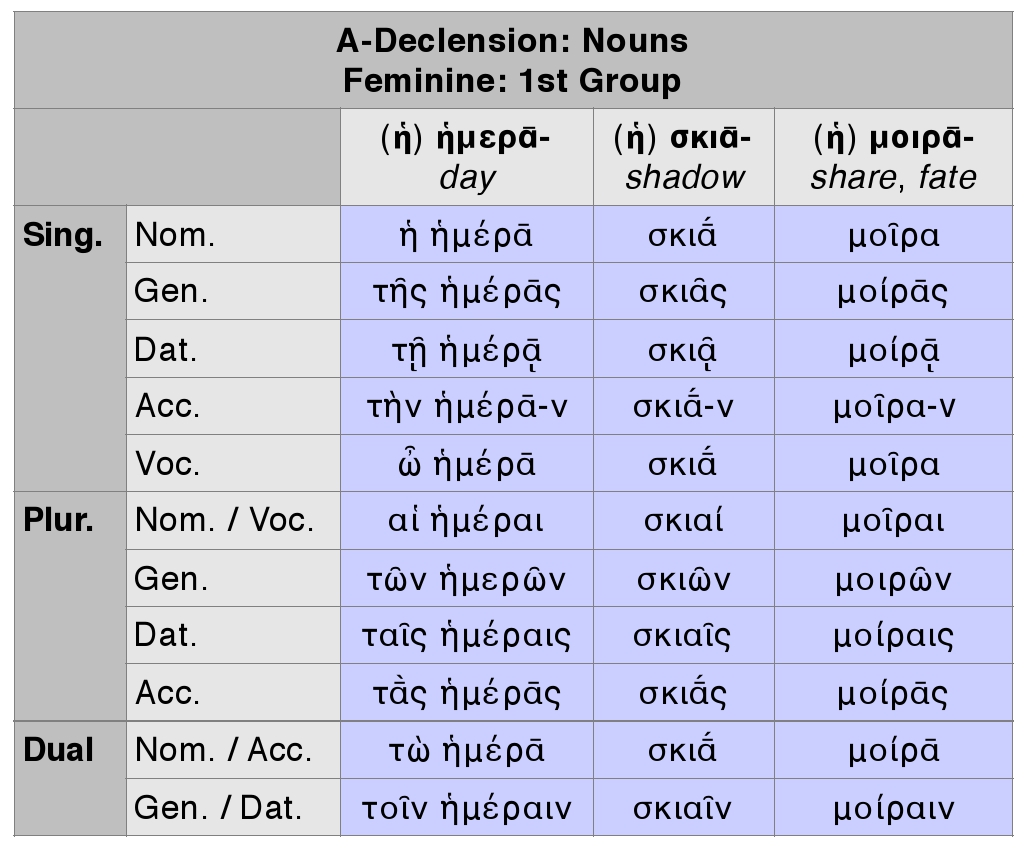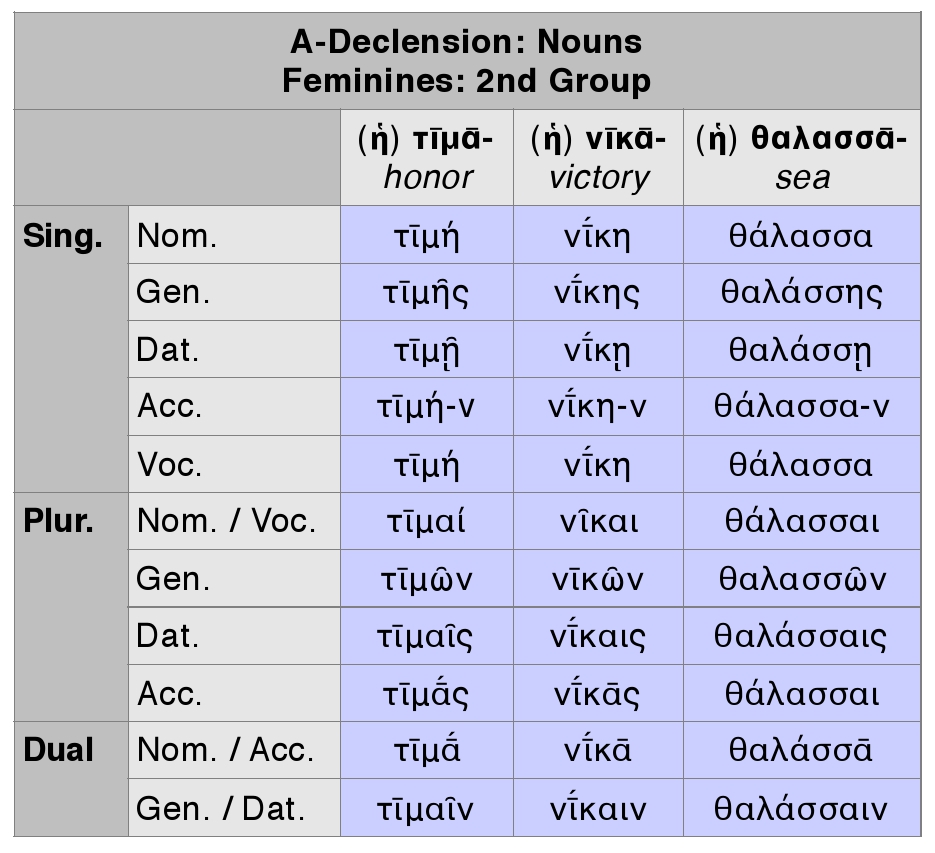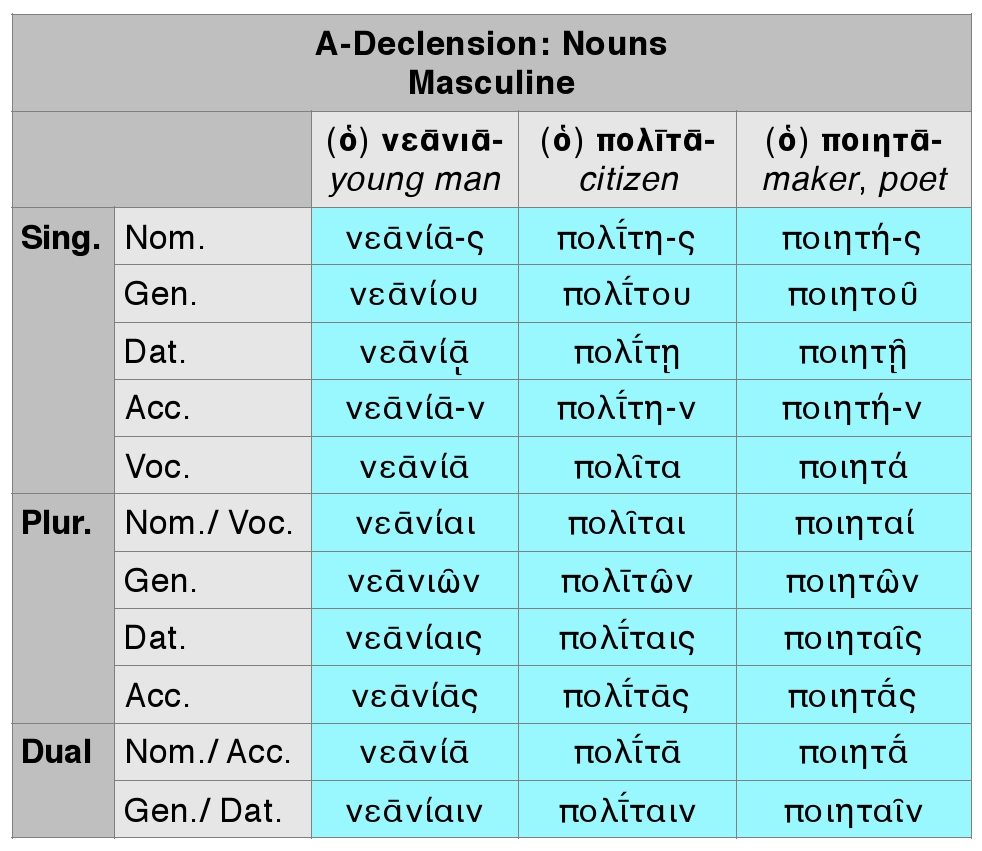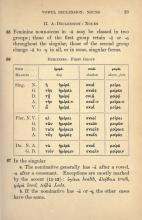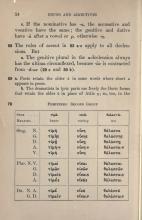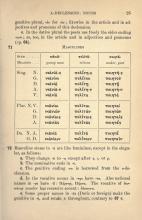65. Feminine noun stems in -ᾱ may be classed in two groups; those of the first group retain -ᾱ or -α throughout the singular, those of the second group change -ᾱ to -η in all, or in some, singular forms.
a. The nominative generally has -ᾱ after a vowel, -α after a consonant. Exceptions are mostly marked by the accent (§§ 11–13).
ὑγίεια health
ἀλήθεια truth
χώρᾱ land
Λήδᾱ Leda
b. If the nominative has -ᾱ or -η, the other cases have the same.
c. If the nominative has -α, the accusative and vocative have the same; the genitive and dative have -ᾱ after a vowel or ρ, otherwise -η.
68. The rules of accent in § 63.a & c apply to all declensions. But:
a. The genitive plural in the α-declension always has the ultima circumflexed, because -ῶν is contracted from -ᾱ́-ων (§§ 29.c and 30.b).
69. a. Poets retain the older ᾱ in some words where short α appears in prose.
b. The dramatists in lyric parts use freely the Doric forms that retain the older ᾱ in place of Attic η; so, too, in the genitive plural, -ᾶν for -ῶν; likewise in the article and in adjectives and pronouns of this declension.
c. In the dative plural the poets use freely the older ending -αισι; so, too, in the article and in adjectives and pronouns (cp. § 64).
72. Masculine stems in -ᾱ are like feminines, except in the singular, as follows:
a. They change -ᾱ to -η except after ε, ι or ρ.
b. The nominative ends in -ς.
c. The genitive ending -ου is borrowed from the ο-declension.
d. In the vocative nouns in -της have -τα. Also national names in -ης have -ᾰ.
Πέρσης, Πέρσα
The vocative of δεσπότης (master) has recessive accent.
δέσποτα
e. Some proper names in -ᾱς (Doric or foreign) make the genitive in -ᾱ, and retain ᾱ throughout, contrary to § 67.c (above).

